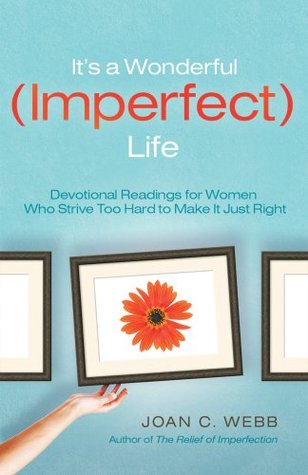8 Questions to Ask Before You Take on a New Task
All of us have to decide whether to take on more work, a new job, more responsibilities. In this Time Management UPGRADE by Dawn Wilson, we'll just call it a "new task."
Women are expected to be good multi-taskers, but we have to know our limits. And we can't compare our limits with others' limits!
Sometimes new tasks are blessings in disguise, and I'm glad I said "yes." Other times, new tasks take me over the top and I ask, "Why, oh why, did I agree to this?"
I used to struggle when I had to decide whether to take on a new task. Whenever I was faced with this kind of decision, I immediately thought:
- Will this get overwhelming?
- What does God think about this?
- What would Bob (my husband) say?
- Will this crowd out things I already think are important?
- Would someone else have more time or be better equipped?
- Would this be an opportunity I can't afford to miss—something I'd regret if I said "no"?
Every time I asked those questions, I had to ramp down strong emotions connected with them.
It's just the way I am. I tend to start hyperventilating—long childhood story I'll skip here—but the bottom line is, I don't want to be overwhelmed with responsibilities.
But actually, those immediate questions I had can be helpful if I'm driven to examine them before the Lord and with godly counsel from others. And I have to keep in mind: we're all different.
We have different personalities and skill sets, and we tend to handle work loads in different ways.
What God asks/allows Suzy-Q to do may be totally different from what He asks/allows me to do. What might be a headache for her might be a total joy for me. Or vice versa!
Most of us are content with Plan A until Plan B comes along. Then we wonder if we should move to Plan B. Or choose Plan C — or a fresh combination of A and B.
So how do we determine whether to take on a new task?
I think there are some important questions to ask:
1. Have you seriously prayed about the new task?
James 1:5 says we can ask for direction from God. He delights in giving us His wisdom.
It helps to spread the matter before the Lord. We seek Him not only because we want His will and He knows what is best for us, but also because we need to hear ourselves "discussing" the task with Him. Sometimes when we "talk through" the issue, we hear the answer!
It also helps to lay out the pros and cons before the Lord. That doesn't mean He won't lead you to say "yes" even if there are some cons, but you need to see both sides clearly.
2. What do you think God is saying?
Is there any scriptural counsel? Is there something you need to study out before making the decision?
Proverbs 2:6 says, "For the Lord gives wisdom; from his mouth come knowledge and understanding" God's Word can give fresh insights.
Once when I wasn't sure about a choice, I ended up studying the topic of "time management." Another time, I studied "patience."
3. How does this new task fit in with your roles in life?
What are your God-given roles? Are you a wife? Mom? Are you single? Each of these roles have built-in limitations ... and wonderful opportunities.
And what are your functional responsibilities? These will differ from woman to woman: employee, employer, homemaker, caretaking daughter, older woman providing child care, Bible study leader, writer/speaker, etc.
4. If married, what is is your spouse's input about this new task?
How does your spouse think this new task will impact your home? If your partner is a Christ-follower, ask for prayer and specific input. If your partner isn't a believer, ask and listen anyway. Sometimes God gives unbelievers practical wisdom, especially the husband who takes his leadership seriously.
Note: If you are unmarried and/or work in an office, can you seek an employer's, co-worker's or friend's counsel?
5. How does this new task align with your personal goals?
Does it get you closer to your goals or further away? Do you need to step outside your comfort zone? Is there a new skill set you need to learn that might make this otherwise "iffy" task more attractive?
If not, are you willing to work for the required time in a task that has no other purpose than income? (But income might be an important issue!)
6. How does this fit into your priorities for the home?
Your home is important for many purposes: relationships, hospitality, ministry, as a practical picture of God or His provision to others, etc. Will this new task help with that?
Note: If you're working outside the home, how does the new task fit into the original job you were hired to do?
7. Do you need to let something else go in order to begin this task?
Would it be possible to delegate some things to create space for the new task?
8. Would you be able to keep your life in balance after taking on this task?
The quickest way to burnout is a life out of balance.
Think about a "task" decision you need to make and apply these questions. Seek wisdom for your choices with the goal of honoring God in all things (1 Corinthians 10:31; Romans 11:36), and ask clarifying questions.
Which of these questions helps you most in deciding whether to take on a new task?
Dawn Wilson, founder and President of Heart Choices Ministries, is the creator of three blogs: Heart  Choices Today, LOL with God (with Pam Farrel), and Upgrade with Dawn. She is the Director of the San Diego chapter of Network of Evangelical Women in MInistry (NEWIM San Diego). Dawn is the co-author of LOL with God and contributed "The Blessing Basket" in It's a God Thing. She and her husband Bob have two grown, married sons, three granddaughters and a rascally maltipoo, Roscoe.
Choices Today, LOL with God (with Pam Farrel), and Upgrade with Dawn. She is the Director of the San Diego chapter of Network of Evangelical Women in MInistry (NEWIM San Diego). Dawn is the co-author of LOL with God and contributed "The Blessing Basket" in It's a God Thing. She and her husband Bob have two grown, married sons, three granddaughters and a rascally maltipoo, Roscoe.
Graphic Adapted, Image courtesy of Stuart Miles at FreeDigitalPhotos.net.
 Post a Comment → Posted on
Post a Comment → Posted on  Tuesday, June 16, 2015 at 9:00AM
Tuesday, June 16, 2015 at 9:00AM  Choices,
Choices,  Goals,
Goals,  Multitasking,
Multitasking,  New Task,
New Task,  Time Management,
Time Management,  Upgrade with Dawn,
Upgrade with Dawn,  Work load,
Work load,  priorities Upgrade Your Life
priorities Upgrade Your Life  Career,
Career,  Ministry,
Ministry,  Time Management
Time Management 
















